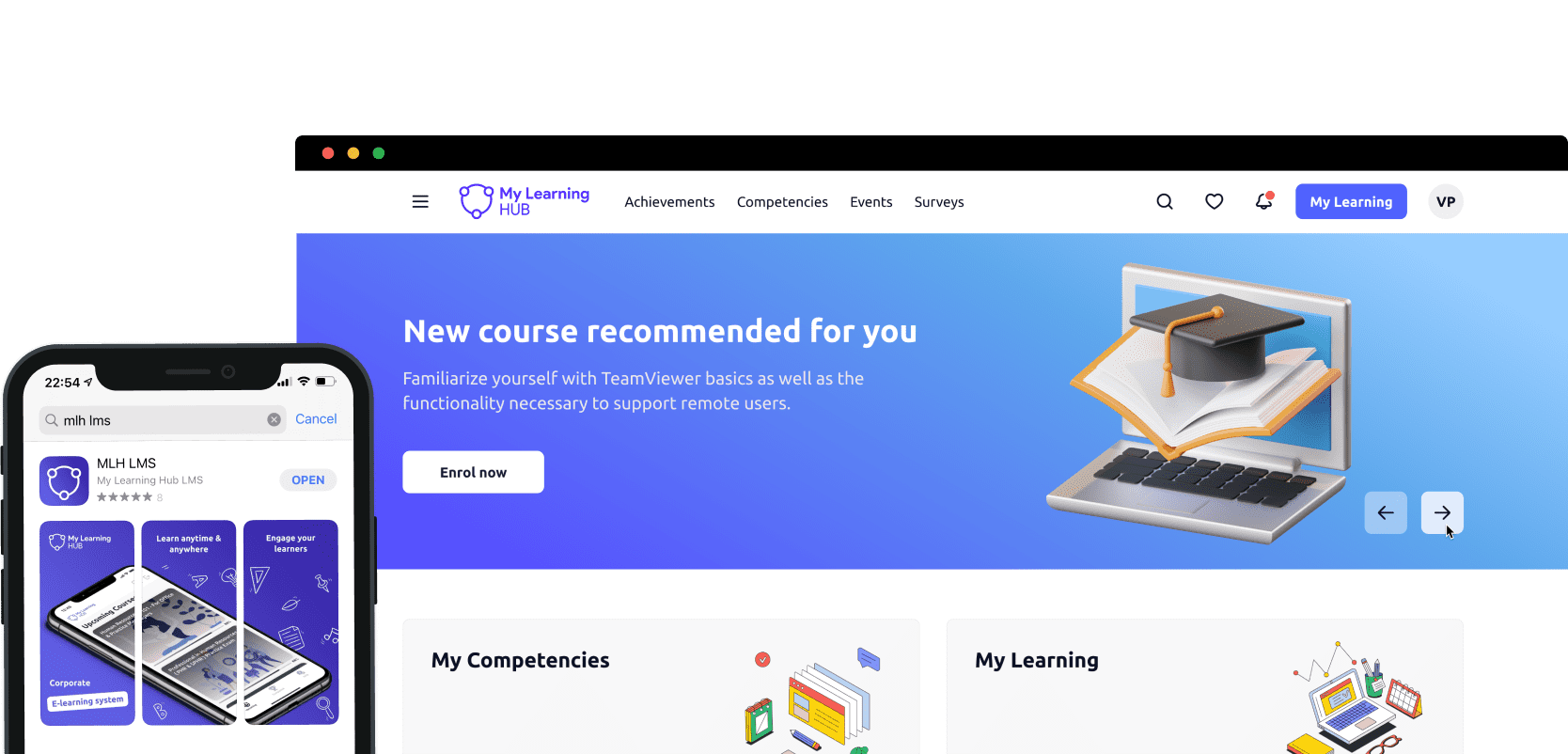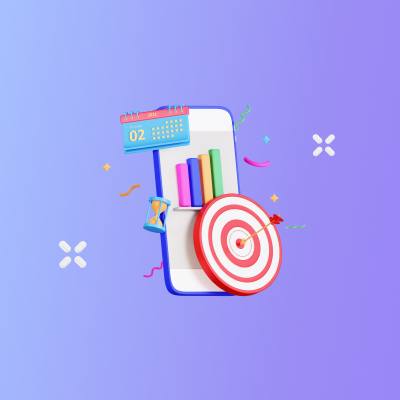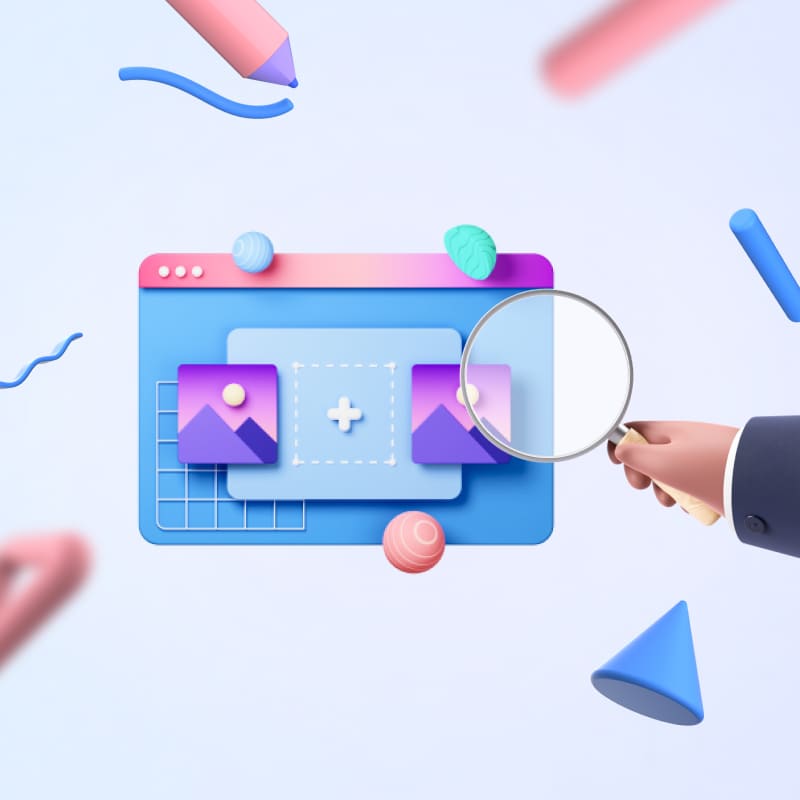
Coaches spend their careers helping other people advance in the workplace. But as the saying goes: you can’t pour from an empty cup.
It is just as important for trainers to undergo professional training programmes of their own. After all, that’s the very best way for employee trainers to keep their tools sharp and their abilities strong.
Improving the quality of your training brings benefits to the business, too. 94% of respondents would stay longer at their job if proper training was provided, according to LinkedIn.
So, let’s get those trainers training to the best of their ability! In this post, we're going to take a closer look at the skills required to be an effective business coach — and the type of training material that works for trainers themselves.
Contents
-
What is a corporate coach and what do they do?
-
Coach skills checklist — 5 skills effective coaches need and how to develop them in training courses for trainers
-
Empathy
-
Strong communication skills
-
Adaptability
-
Organisational skills
-
Innovation
-
-
Develop your coaches with employee training solutions from My Learning Hub
What is a corporate coach and what do they do?
At the spearhead of all professional training programmes is a corporate coach. A corporate coach develops and implements programs that improve employees’ skills and knowledge. These skills and knowledge sets are generally directly tied to your business's needs, workflows and desired skills.
Corporate coaches may also be called in when your business is going through a period of growth or change. These periods are generally associated with changes in mission and operations, which may require additional training for your staff.
A great career trainer will analyse where your teams are at to decide how best to train them. After all, a one-size-fits-all approach is destined to leave some of your staff behind.
Coach skills checklist — 5 skills effective coaches need and how to develop them in training courses for trainers
Becoming an effective coach is all about developing the right skills. These skills are centred around being interpersonally adept and knowing how to communicate.
Let’s take a closer look at what it takes to be an effective career trainer.
Empathy
Being empathetic towards another person’s experiences is essential for coaching, even in a professional setting. Empathy isn’t about being soft or soppy, it’s about being able to see events from where another person is standing and to connect with colleagues or coachees in a way that’s entirely judgement-free.
It’s a ‘soft skill’, yes, but it doesn’t make you ‘soft’!
Training for trainers tip >> When it comes to creating training material for trainers, you want a good mix of solo, concentrated work and group interactivity. One exercise that helps build empathy among your training cohort is to have trainers share a short story — something about their life or how they got to the training programme today. Then, have the rest of the group perform active listening and relay back to the presenter something they noticed about the presenter’s body language, tone and/or subtext as they shared. This ticks off a number of essential skills that coaches need strong abilities in, which leads us on to…
Strong communication skills
This one should come as a no-brainer. After all, it's the job of a coach (or any teacher) to communicate new concepts, ideas and strategies to individuals.
For that, you need to have strong communication skills. That includes being a solid orator, which is a skill in its own right. Becoming comfortable and effective in your communication is the cornerstone of being a successful career coach.
Training for trainers tip >> No matter how experienced a career trainer is, courses for trainers should always include some form of presentation exercise. That way, the group can feed back to each trainer on their communication skills and ability to hold the room’s attention.
Adaptability
An employee trainer also needs to be able to adapt. No two teams or departments are alike, let alone two employees. To be able to effectively train different groups, coaches need the ability to flex to whom they meet in the room.
Coaches should also be able to adapt to new ways of thinking and teaching. New research, approaches and information are always being made available. It's up to coaches to take this information in and use it to fuel innovative teaching styles and content.
Training for trainers tip >> Any recent research regarding corporate business coaching practices and theory makes great training materials for trainers. Roleplay is also great to use for in-person courses for trainers, as it helps explore the myriad scenarios an employee trainer may find themselves in.
Organisational skills
Stellar organisational skills come with the territory for trainers, as you'll need to be able to put together employee/manager training programmes that are easy to follow and draw inspiration from.
Training for trainers tip >> Coaching may be a solo sport in some companies, but when it comes to professional training programmes for trainers themselves, you’ll want to incorporate a number of group exercises. This challenges a coach to step up and self-organise, as well as deal with the dynamics of group work — something they’ll need strong abilities in when leading group training programs within an organisation.
Innovation
You might be a bit surprised to see this one wrap up our coach skills checklist, but innovation is an important aspect when it comes to professional training programmes. Not only do career trainers need to keep their own training content feeling fresh, but they’ll also need to help coachees to connect the dots in their experience and solve problems creatively.
Training for trainers tip >> Are your coaches aware of the difference between closed and open questions? Does your training material challenge trainers to think ‘outside of the box’ and design new training activities and programmes beyond what they’re used to already?
Develop your coaches with employee training solutions from My Learning Hub
Looking to launch, update or consistently deliver training across your organisation? Use My Learning Hub as a central learning space for everyone in your workplace. With its efficient learning management system and intuitive content builder plug-in, you can now easily create, customise, track and recommend the knowledge your employees, partners or customers need.
Book a demo today to learn more.










